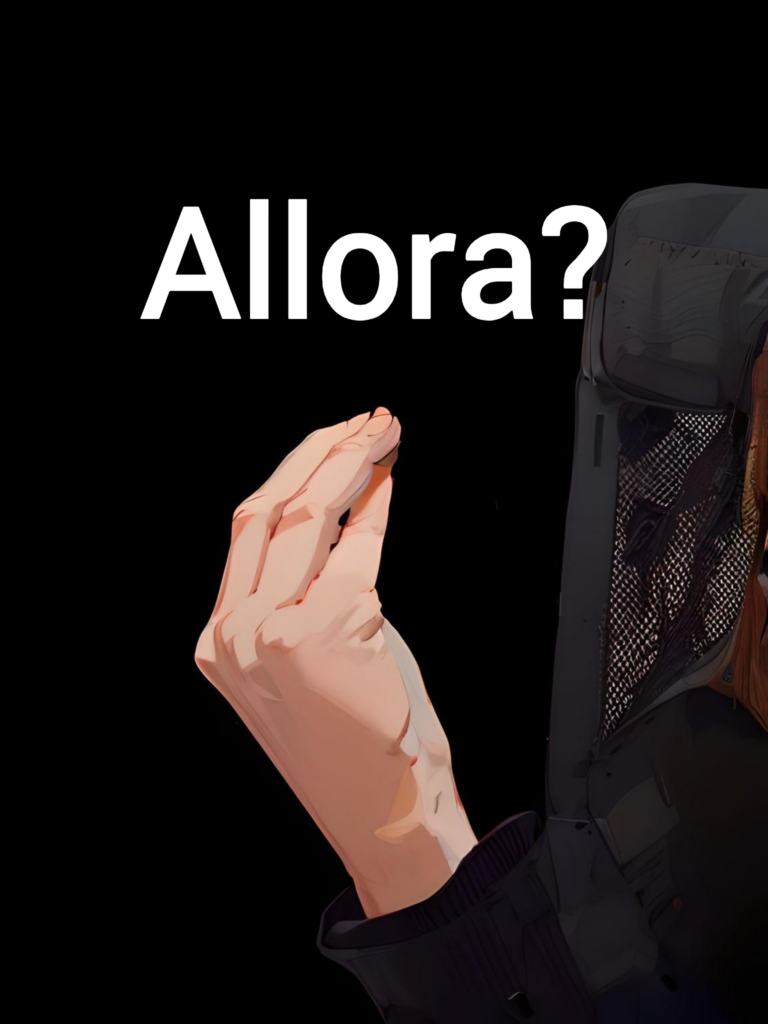In this blog we discuss the seven ways to use ‘allora’ in Italian. This is a comprehensive guide exploring its functions from initiating speech to expressing curiosity.
Seven ways of using ‘allora’ in Italian:
- To take the floor / to begin a speech
- To buy time when we need a pause to think
- To explain the consequence of what was said before
- To talk about a particular moment in the past or future
- To encourage someone to do or say something. to express curiosity.
- To press on, to urge
- A saucy: so what?
The first question I always get from my students when starting a new course is: what does ‘allora’ mean?
This little word is incredibly common, especially in spoken Italian, and Italians use it all the time without even realising it. This is because it has different functions and meanings.
Therefore, I have dedicated this blog to exploring its multifaceted nature and its pervasive presence in Italian communication. From casual conversations to more formal discourse, ‘allora’ is a versatile tool in your linguistic toolbox.
To start with ‘allora’ operates as a filler word to buy you time, to collect your thoughts or to attract attention when you are about to speak.
But at its core, ‘allora’ has other functions such as indicating the consequence of preceding statements or to refer about a particular time in the past or the future as well as encouraging someone to divulge information.
Join us as we dissect the nuances of “allora,” exploring its significance as a very commonly used word both in colloquial Italian as well as written. Through practical examples and definitions, we aim to deepen our understanding of this fundamental element of the Italian language.
Allora, iniziamo!
So, let’s start!

1. TO TAKE THE FLOOR / TO BEGIN A SPEECH
In this case, the word does not have a specific meaning, it is a filler word and in fact, one could say the same sentence without using allora, in the same way as in English we use the word so.
Imagine a teacher entering the class, sitting down and then talking to the class. In this case in Italian, the first sentence might often start with ‘allora’.
For example:
✨ Allora, oggi parliamo di grammatica…
✨ Allora, questa è la nostra ultima lezione…
✨ Allora, domani andiamo in gita…
English translation: So…
👉 So, today we are going to talk about grammar…
👉 So, this is our last lesson…
👉 So, tomorrow we are going on our trip…

2. TO BUY TIME WHEN WE NEED A PAUSE TO THINK
This is also a case where allora is used as a filler word, and specifically to buy time.
Let’s imagine a situation where someone asks someone a difficult question. For example, do you like Giorgia? You might want to be diplomatic so you buy time in order to think. In English you might say: well… Another situation is when someone is unsure about making a decision, even a simple one.
For example:
✨ Ti piace Giorgia? Allora…è una persona vivace, forse un po’ troppo…
✨ Cosa ne pensi di questo libro? Allora…sì, vediamo… l’ho letto con piacere
✨ Cosa desidera? Allora…prendo un caffè e un cornetto
English translation: Well…
👉 Do you like Giorgia? Well… she is very lively, perhaps a bit…
👉 What do you think of this book? Well… yes, let’s see…it was nice…
👉 What would like? Yes…so… I’ll have a coffee and a croissant…
3. TO EXPLAIN THE CONSEQUENCE OF WHAT WAS SAID BEFORE
The function of allora here is causal. It introduces a consequence based on what has been said before.
Italian synonyms are: quindi, pertanto, per questa ragione
For example:
✨ Oggi sono proprio stanca allora preferisco non uscire stasera.
✨ Mi trovo in una situazione difficile, allora vorrei il tuo aiuto.
✨ Vado alla festa allora non posso andare al cinema con te.
English translation: so, therefore, hence, for this reason, because of that, etc
👉 Today I’m really tired, so I prefer not to go out tonight.
👉 I find myself in a difficult situation, so I’d like your help.
👉 I’m going to the party, so I cannot come to the cinema with you.
4. TO TALK ABOUT A PARTICULAR MOMENT IN THE PAST OR FUTURE
Allora can have a temporal function, in this case, it refers to a specific moment in the past or in the future.
For example:
✨ Mio padre lavorava bene negli anni 50, allora c’era il boom economico.
(allora = in quel periodo nel passato)
✨ In passato le donne lavorano a casa, allora era la normalità.
(allora = in quel periodo nel passato)
✨ Quando sarai genitore, allora capirai.
(allora = in quel momento nel futuro)
English translation: back then, then
👉 My father used to have a lot of work in the 1950s, back then there was an economic boom.
👉 In the past women worked at home, back then it was the norm.
👉 When you’re a parent, then you’ll understand.
5. TO ENCOURAGE SOMEONE TO DO OR SAY SOMETHING. TO EXPRESS CURIOSITY.
Here the word allora, might be translated with so or well. This is commonly used in colloquial spoken Italian.
For example:
✨ Allora, cosa è successo?
✨ Allora, dimmi tutto!
✨ Allora, com’è andato l’esame?
English translation: So, well…
👉 So, what happened?
👉 So, tell me everything!
👉 So, how did the exam go?
6. TO PRESS ON, TO URGE
This is similar to the previous use and it is very commonly used in colloquial speech.
For example:
✨ Allora andiamo?
✨ Allora, cosa stiamo aspettando?
English translation: So, well…
👉 So, shall we go?
👉 So, what are we waiting for?

7. A SAUCY: SO WHAT?
Allora is also used in this sassy way, as in English one would say: so what?
Imagine a mother talking to her teenage daughter saying something along the lines of: when I was your age, I didn’t dress like that. And the daughter of course responding: E allora? So what?
For example:
✨Madre: Non mi sono mai comportata così alla tua età!
✨Figlia: E allora?
English translation: So what?
👉 Mother: “I never behaved like this at your age!”
👉 Daughter: “So what?”
In this comprehensive guide, we have explored the seven ways to use ‘allora’ in Italian, shedding light on its versatile usage in Italian communication. From initiating speech to expressing curiosity, ‘allora’ serves as a fundamental element of the Italian language, deeply embedded in both colloquial and formal discourse.
By understanding the nuanced functions of ‘allora,’ readers can enhance their proficiency in Italian and sound more fluent and authentic.
As we conclude our exploration, it’s evident that ‘allora’ transcends its literal translation. It’s pervasive presence in everyday dialogue underscores its importance as a linguistic tool, shaping interactions and conveying subtle nuances of meaning.
Keep exploring the Italian language and culture, using ‘allora’ to enhance your conversations and deepen your understanding.
If you wish to develop your Italian further, don’t miss this blog related to the word ‘differente’ another word full of surprises ;). Click here.
How about the word busy? Discover another mischievous Italian word Here.
Allora, a presto!
(So, see you soon!)







